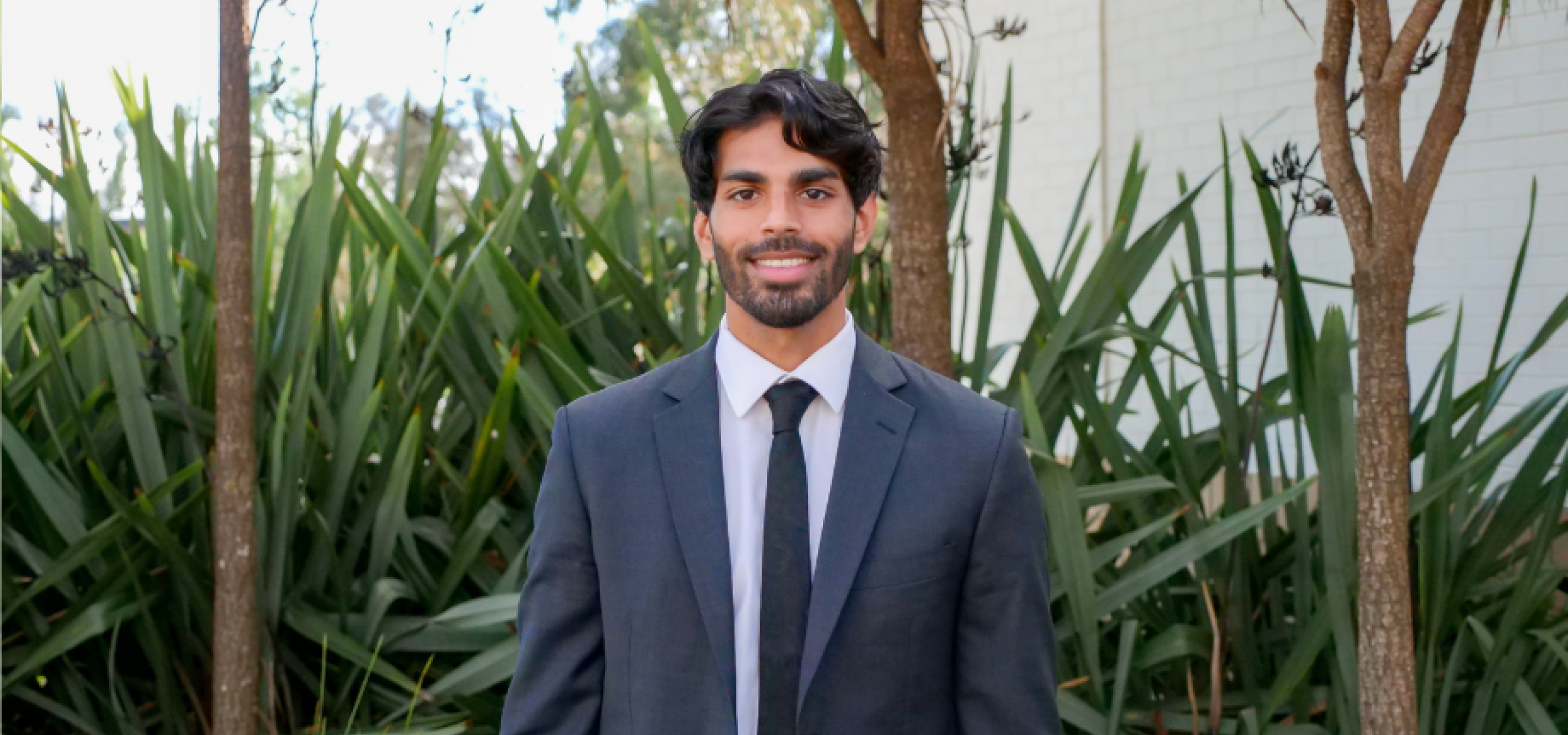
Over the course of his internship, Keshav Karupiah assisted the UNIDROIT Secretariat with its work in developing a soft law instrument on bank insolvency.
My internship and the opportunity to work overseas exposed me to perspectives on the law which differ from the approaches underpinning the common law system followed in Australia.
Keshav Karupiah, a final-year Bachelor of Laws (Honours)/International Relations student at The Australian National University (ANU), recently spent three months in Rome immersed in a legal internship that shaped his outlook on law in more ways than one.
Keshav completed his internship at the International Institute for the Unification of Private Law (UNIDROIT), an intergovernmental organisation that studies methods for modernising, harmonising and coordinating private and commercial laws between countries.
“The organisation’s objective should be understood with reference to the fact that legal systems often have divergent ways of dealing with given situations, which inevitably gives rise to conflicts,” Keshav said.
“To reduce these conflicts, states could either agree upon uniform conflict of laws rules or, more ambitiously, they could draft international instruments with the object of establishing uniform internal laws for adoption by states.
“UNIDROIT pursues the latter endeavour, placing slightly more emphasis on soft law instruments than on international conventions.”
Over the course of his internship, Keshav assisted the UNIDROIT Secretariat with its work in developing a soft law instrument on bank insolvency.
“The aim of the project is to produce a legislative guide to assist legislators and policymakers around the world in reforming or refining their bank liquidation frameworks,” he said.
“The project is carried forward by a working group composed of experts in insolvency law, bank crisis management, and deposit insurance.”
In his role as an intern, Kesh conducted comparative legal research, attended meetings, conferences and lectures, and assisted with ad-hoc tasks.
He said one of the highlights of his internship was the “opportunity to delve into the operation of transaction avoidance regimes in bank liquidation proceedings”.
“I examined existing international instruments as well as legislation from select jurisdictions and considered whether the future legislative guide would need to provide bank-specific guidance, particularly in relation to the ‘lender of last resort’ function of central banks,” Keshav said.
“It was also an immense privilege to gain insights from subject matter experts during a fairly turbulent time for banking.”
Keshav said the opportunity to collaborate with “academics, lawyers and law students from diverse legal backgrounds (especially from civil law traditions) fostered a rich learning environment”.
“I came to appreciate the importance of cross-cultural communication and the role it can play in discussing, negotiating and resolving complex legal issues in an increasingly globalised legal landscape,” he said.
Keshav believes his internship experience influenced his perspective on law in several ways.
“From a domestic law perspective, my internship and the opportunity to work overseas exposed me to perspectives on the law which differ from the approaches underpinning the common law system followed in Australia,” he said.
“From a public international law perspective, I was fascinated to see how, in practice, states straddle traditional tensions in the field, particularly those embedded in questions about sovereignty and participation in international organisations and conventions.”
In observing a “range of responses to the legislative guide, from apathy on the part of states with no ostensible intention of using the instrument, to immense caution on the part of others in how they approached interstate dialogues and advanced unilateral viewpoints”, Keshav also found it “valuable to see how non-legal practicalities can threaten to hamstring the widespread adoption of international commitments and causes”.
Reflecting on his experiences, Keshav said relocating to a foreign country where he couldn’t speak the language forced him to step outside his “comfort zone, embrace cultural differences and develop a ‘thick skin’”.
“Though challenging at times, I found my time in Rome to be enriching on many levels,” he said. “I would highly recommend taking up one of the University’s many opportunities to study abroad.”
Keshav completed his internship at UNIDROIT with the support of the Yuill Bursary Award.
“Rome is an expensive city and my internship would not have been possible without the generous support of the Yuill Endowment,” Keshav said.
Now he is back in Australia, Keshav is looking to graduate at the end of the year and take the next steps in his legal career.
“In 2024, I will be commencing as a graduate lawyer in the Sydney office of global law firm, Jones Day.”
Find out more about international study opportunities for ANU Law students here.